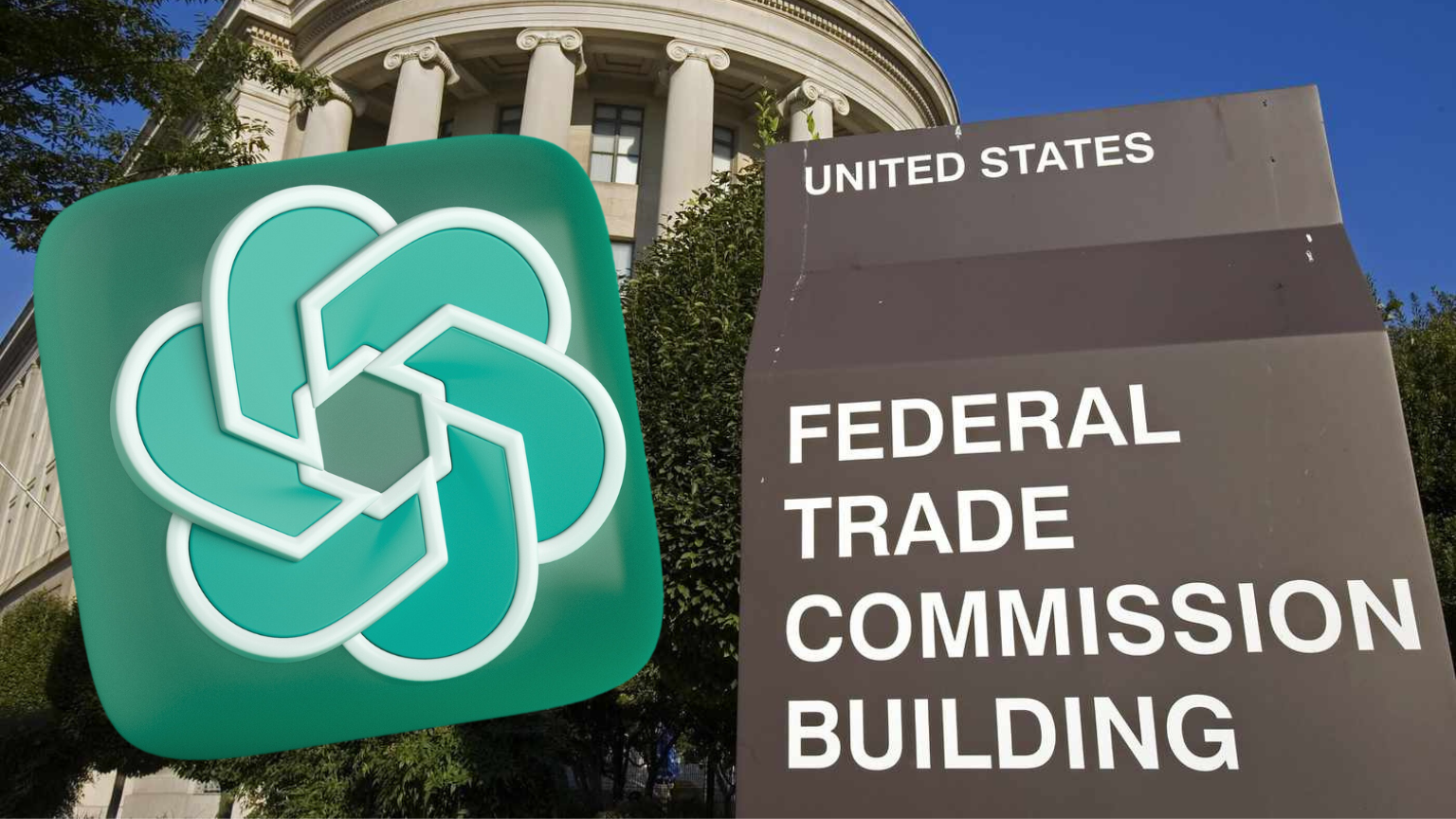OpenAI's ChatGPT Under FTC Scrutiny: Data Privacy Concerns

Table of Contents
The FTC's Investigation: What are the Allegations?
The FTC's investigation into OpenAI's ChatGPT centers around allegations of insufficient data protection and potential violations of consumer protection laws. The commission is examining ChatGPT's data handling practices, raising concerns about the collection, use, storage, and potential misuse of personal data.
-
Allegations of violating consumer protection laws: The FTC is investigating whether OpenAI has adhered to the requirements of laws such as the Children's Online Privacy Protection Act (COPPA) and the California Consumer Privacy Act (CCPA), which mandate specific procedures for handling children's data and providing consumers with control over their personal information. Failure to comply with these laws could result in substantial penalties.
-
Concerns about the collection, use, and storage of personal data: The FTC is scrutinizing how ChatGPT collects, utilizes, and secures user data. Concerns exist regarding the volume of data collected, its potential sensitivity (including potentially revealing Personally Identifiable Information - PII), and the security measures in place to prevent data breaches.
-
Potential for unauthorized data disclosure and breaches: The investigation is exploring the possibility of vulnerabilities within ChatGPT's system that could lead to unauthorized access or disclosure of user data. This includes assessing the robustness of OpenAI's security protocols against both internal and external threats.
-
Lack of transparency regarding data practices: A major concern is the lack of transparency surrounding OpenAI's data handling practices. The FTC is investigating whether OpenAI has adequately informed users about how their data is collected, used, and shared, potentially violating principles of informed consent.
-
Failure to adequately protect children's data: The handling of children's data is a particular focus, given the potential for ChatGPT to be used by minors. The FTC is examining whether OpenAI has implemented adequate measures to protect children's data in compliance with COPPA and similar regulations. This includes examining mechanisms for age verification and data minimization strategies specific to children.
Data Privacy Risks Associated with ChatGPT and Similar AI Models
Large language models (LLMs) like ChatGPT present inherent data privacy vulnerabilities. Their reliance on vast datasets for training and operation creates several significant risks.
-
Data scraping and potential for unintended data leakage: The training process for LLMs often involves scraping data from the internet, which can inadvertently incorporate sensitive personal information. This raises concerns about the potential for unintended data leakage and the difficulty in ensuring the complete removal of PII from training datasets.
-
The risk of bias and discrimination in AI-driven data processing: The data used to train LLMs can reflect existing societal biases, leading to discriminatory outcomes. This is a serious ethical and legal concern, as it can perpetuate and amplify existing inequalities. The FTC's investigation likely includes an assessment of the fairness and impartiality of ChatGPT's outputs.
-
The difficulty in anonymizing and securing vast amounts of training data: Anonymizing the massive datasets used to train LLMs is a complex and challenging task. Even with anonymization techniques, there's always a risk of re-identification, potentially compromising user privacy. The security of these datasets during training and storage also presents a significant challenge.
-
The potential for misuse of personal information obtained through user interactions: ChatGPT's interactive nature means it collects data directly from users. There's a risk that this data could be misused, either intentionally or unintentionally, leading to privacy violations or security breaches.
The Impact on OpenAI and the Future of AI Development
The FTC's investigation carries significant consequences for OpenAI. Potential outcomes include:
-
Potential for significant fines from the FTC: Non-compliance with data privacy regulations can lead to substantial financial penalties, potentially impacting OpenAI's financial stability.
-
Increased regulatory scrutiny of AI companies: The investigation sets a precedent for increased scrutiny of AI companies, potentially leading to stricter regulations and oversight across the industry.
-
Impact on investor confidence and future funding: Negative publicity and regulatory penalties can erode investor confidence and make it harder for OpenAI to secure future funding.
-
Potential for changes in AI development practices and data handling protocols: The investigation could force OpenAI and other AI companies to adopt more robust data privacy practices and develop more transparent data handling protocols. This includes adopting privacy-enhancing technologies (PETs) and strengthening data security measures.
Strengthening Data Privacy in AI: Best Practices and Recommendations
Addressing data privacy concerns in AI systems requires a multi-pronged approach:
-
Implementing robust data encryption and security protocols: Strong encryption and advanced security measures are crucial to protecting user data from unauthorized access.
-
Developing transparent and user-friendly data privacy policies: Clear and accessible data privacy policies are essential to build user trust and ensure compliance with regulations.
-
Providing users with greater control over their data: Users should have the ability to access, correct, delete, and control the use of their data.
-
Investing in advanced data anonymization techniques: Employing advanced anonymization techniques can help mitigate the risk of re-identification from training datasets.
-
Conducting regular security audits and penetration testing: Proactive security assessments are vital to identify and address vulnerabilities before they can be exploited.
Conclusion
The FTC's investigation into OpenAI's ChatGPT underscores the critical importance of data privacy in the rapidly evolving field of artificial intelligence. The potential risks associated with large language models necessitate a proactive approach to data security and regulatory compliance. The outcome of this investigation will significantly impact the future of AI development, setting a precedent for other companies and influencing the development of stricter data protection laws. Understanding and addressing these data privacy challenges is crucial for responsible innovation in the AI space.
Call to Action: Stay informed about the ongoing developments in the FTC's investigation of ChatGPT and the evolving landscape of AI data privacy. Understanding the data privacy implications of ChatGPT and other AI technologies is crucial for both developers and users. Let's work together to ensure a future where AI innovation is balanced with robust data protection measures.

Featured Posts
-
 Japans Economy Contracts In Q1 Pre Tariff Impact
May 17, 2025
Japans Economy Contracts In Q1 Pre Tariff Impact
May 17, 2025 -
 Temuera Morrisons End Of The Valley Your Complete March Viewing Guide For The Listener
May 17, 2025
Temuera Morrisons End Of The Valley Your Complete March Viewing Guide For The Listener
May 17, 2025 -
 The Zuckerberg Trump Presidency Dynamic Impact On Technology And Society
May 17, 2025
The Zuckerberg Trump Presidency Dynamic Impact On Technology And Society
May 17, 2025 -
 Tracing The Trump Family Tree From Ancestors To Descendants
May 17, 2025
Tracing The Trump Family Tree From Ancestors To Descendants
May 17, 2025 -
 Ver Venezia Napoles Online Transmision En Vivo
May 17, 2025
Ver Venezia Napoles Online Transmision En Vivo
May 17, 2025
